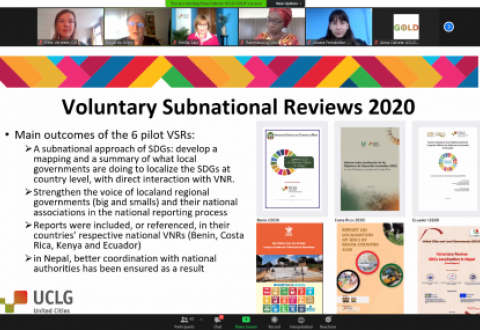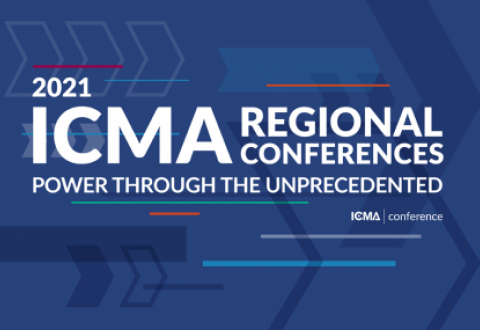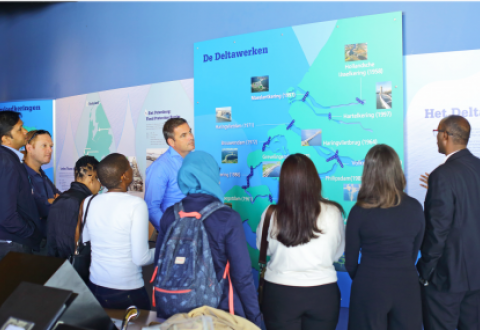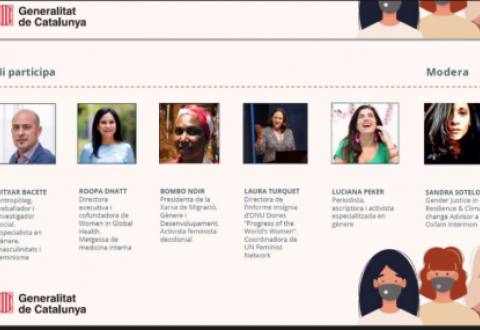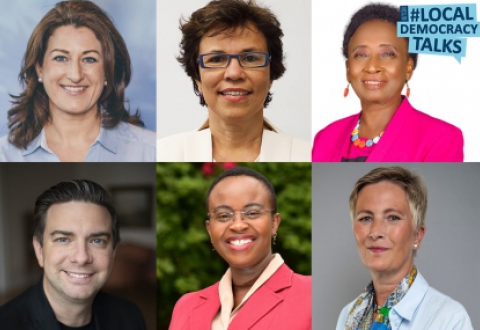Dear readers,
It is our pleasure to hereby send you the second CIB newsletter of 2021. Thank you all for your contributions!
The CIB secretariat was delighted to see many of you at the digital UCLG Retreat and on different other occasions in the first months of 2021! The CIB year has kicked off well, with activities in the field of Monitoring & Evaluation, SDG reporting and important policy work.
In this newsletter, we gladly announce that the research for the UCLG/CIB policy paper on Development Cooperation & Local Governments progresses has started. You are invited to fill in the survey later this week and before the 24th of March. You will soon receive more information by email!
Moreover, we will present a ‘CIB Monitoring, Evaluation and Learning guidance note in times of COVID-19’ at the end of this month. Register now for the presentation of the CIB MEL guidance note on March 31, from 15:00 - 16:00 CET register here!
All in all, we have exciting months ahead of us. The calendar on the CIB website is now updated with many interesting events coming up soon. Don't miss anything; have a look here!
Warm regards,
CIB Working Group secretariat
Jessie Post, Stan Abma and Renske Pelsma
CIB News
Policy Items & UCLG News
Updates by CIB Members
Trainings & Campaigns
News regarding gender equality at local level
Calendar of Events
Publications
Municipalities are already working on the topics covered in this handbook in many different ways. The Norwegian Association of Local and Regional Authorities' (KS) objective has been to provide good examples and new suggestions that may be useful for age-friendly development in the municipalities. The handbook and the focus areas have been developed in collaboration with municipalities participating in the network for age-friendly communities, as well as experts in KS, municipalities and national organisations. The network is financed by the Norwegian Government.
In 2010, the Swedish local authorities association SKL International has set up SymbioCity. The programme is a holistic and inclusive approach to sustainable urban development that transforms urban challenges into opportunities. By integrating economic, environmental, sociocultural and spatial dimensions along with gender and pro-poor perspectives, SymbioCity moves cities towards sustainable and inclusive urban places. The SymbioCity programme is ending and SKL International made a publication with lessons learned, based on experiences from cities on four continents. It is meant to provide inspiration and tools for other cities wishing to embark on the journey to sustainability.
The United Nations’ Sustainable Development Goals (SDGs) establish a series of bold, yet essential, targets to be achieved by 2030, which combine social inclusion, economic development and sustainability. For local and regional governments (LRGs), they form a transformative agenda that strives to: improve the delivery of public services to citizens; enhance people’s engagement in public policy-making by breaking down dividing walls between different policy areas; and foster connections with, and between, different stakeholders. Throughout the 20th and 21st centuries, DC has been developed and improved. This has been achieved through collaborations between national associations of cities and local government organizations and by the implementation of local and regional government agendas worldwide. DC aims to directly support local development, decentralisation processes, and institutional reinforcement, among others. Thereby, it seeks to improve the designing of territorial public policy. DC has also been shown to offer specific advantages for local and territorial development and a key way to achieve the localization and implementation of the SDGs.


